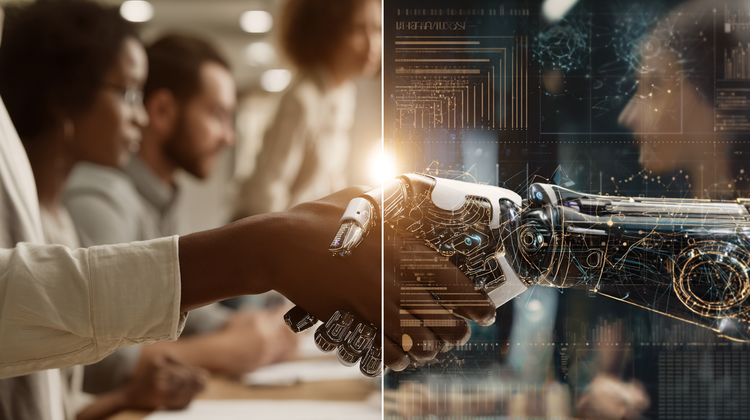The ROI of AI in Recruiting: Why Efficiency is the Future

But what if the haystack could sort itself out? That’s the power of AI-driven recruiting, and its return on investment (ROI) is proving impossible to ignore.
Artificial intelligence has rapidly woven itself into nearly every area of business, and recruitment is no exception. Yet, the pushback is real. People question whether machines can truly make human-centric decisions. Here’s the truth: AI doesn’t replace the human touch in recruiting, but it enhances it. It’s not here to steal HR jobs; it’s here to make your life easier, faster, and smarter.
Breaking Free from Traditional Bottlenecks
Traditional recruiting processes often feel like walking through quicksand. On average, filling a vacant position can take up to 40 days, according to the Society for Human Resource Management. Now, combine that with the cost-per-hire for onboarding, training, and talent attrition when hires don’t work out, and what you have is a seriously costly mess.
AI challenges these inefficiencies by eliminating manual tasks that bog recruiters down. An intelligent screening tool, for example, can parse thousands of resumes in minutes, matching candidates to job descriptions with precision. Research shows that companies using AI in their hiring processes reduce time-to-hire by up to 30–40%. It’s not just time savings we’re talking about; hiring faster means teams become fully functional sooner, boosting productivity.
The Tangible Benefits of AI in Recruiting
When it comes to ROI, the numbers do not lie. AI doesn’t just save time, it saves money. Automated candidate screening alone can reduce recruitment costs by up to 50%, enabling HR teams to focus more on strategy and candidate engagement.
Then there’s quality. With data-backed insights, AI systems can evaluate candidates beyond the surface-level “keywords.” Tools leveraging natural language processing (NLP) and machine learning assess nuances in skills, experience, and personality, ensuring a stronger alignment between candidates and roles. The result? Improved employee retention rates by 23% for organizations leveraging AI in candidate matching.
Beyond efficiency and cost, AI also fosters inclusivity. Adaptive algorithms, when built ethically, can help reduce unconscious bias by focusing solely on qualifications, skills, and data. Take the now famous example of IBM’s Watson Recruitment tool that successfully increased diversity across their hires without compromising on quality.
Addressing the Skeptics
Of course, not everything about AI-powered recruiting is perfect. Critics highlight potential issues such as algorithmic bias, transparency concerns, and the fear of losing the “human element.” And they’re right to want careful implementation. AI systems are only as good as the data they’re trained on. Feed them biased data, and you’ll get biased results.
That’s why ethical development and consistent monitoring are critical. Recruitment teams must work with AI, not against it. AI provides the data and insights, but humans add context, empathy, and relational problem-solving that no machine can replicate. It’s not a question of man versus machine; it’s about how the two can work together.
The Future is Now
AI-driven recruiting isn’t a pipe dream for some distant future. It’s happening today, and the organizations using it are already seeing unrivaled benefits. From enhanced efficiency to better candidate quality, AI flips the traditional recruitment model on its head and helps teams focus on high-impact initiatives instead of administrative drudgery.
But what makes AI truly shine is not just how it cuts costs or saves time, but how it empowers HR professionals to focus on what they do best: connecting with people, building strong workplace cultures, and shaping the future of their organizations.
If you’re ready to see how AI can transform your hiring process, don’t wait. The ROI speaks for itself. It’s time to make recruiting smarter, faster, and more human (ironically, with a little help from machines).



